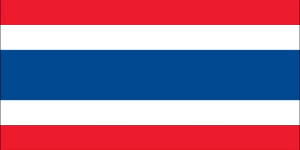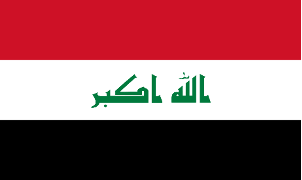November 21, 2020
Dear friends,
CANVAS is pleased to bring you another weekly report! This week covers promising COVID-19 vaccines, an intensifying refugee crisis in Sudan, the end of a lengthy teachers’ strike in Zimbabwe, and more.
37 people were killed in the riots in Uganda after the arrest of the opposition leader Bobi Wine. Wine was released on bail, after he was arrested on Wednesday for allegedly violating coronavirus measures.
German police broke up demonstrations in Berlin against opponents of the restrictive Covid 19 measures. Police used water cannons on protesters after they ignored calls to wear masks and keep a safe distance from each other.
The World Health Organization has recommended that the COVID-19 medication remdesivir not be used to treat hospitalized coronavirus patients of any severity due to emerging evidence from a study that demonstrates it has little to no effect on the wellness of the patient. Bioceutical company Pfizer and its German partner BioNTech have sought emergency authorization for a coronavirus vaccine in the US. American bioceutical company Regeneron has also applied for emergency use authorization for its antibody treatment for the coronavirus. Meanwhile, Brazil surpassed 6 million coronavirus cases on Friday, becoming the third country to hit this milestone following the United States and India.

The aftermath of the 2020 Presidential Election continues to play out. Joe Biden was confirmed the winner in Georgia after a recount, while Donald Trump continues to dispute the election results by claiming voter fraud and rigging. Trump is focusing his election fraud claims on Michigan, attempting to rally certification board members to overturn endorsements of Biden. Meanwhile, concerns are mounting about Trump’s potential drastic actions during his last weeks in office with important implications for foreign policy, especially with regards to China, Afghanistan, Iran and Israel. Meanwhile, a coalition of climate activists has protested Biden’s decision to appoint people with connections to the oil industry to his staff.

A Beijing representative said that the mainland Chinese government is “considering changes” to Hong Kong’s Basic Law, a document that has long acted as the city’s mini-constitution and guaranteed certain liberties to all residents. Another official made it clear on Tuesday that Beijing wants to reform Hong Kong’s judicial system. The local government continues to crack down on dissent: this week, a high-ranking official rejected a protest application from journalist groups seeking to rally against the recent arrest of a journalist covering last year’s controversial Yuen Long incident. Police are also set to investigate students who chanted “separatist slogans” at the Chinese University of Hong Kong, as such slogans have been criminalized under the National Security Law.

Anti-government protester Roman Bondarenko died last Thursday after spending several days in a hospital following a severe beating by the police. In response, protesters have begun chanting his last words at demonstrations around the country: “I’m going out.” Belarusian authorities have also ordered banks to freeze the assets of Andrei Leonchik, who has raised millions of dollars to help protesters pay fines and medical bills, on the pretense that the funds were going to be used to “topple the government.” In other news, the Belarusian Journalist Association won the Media Freedom Award earlier this week for its “ongoing commitment to journalistic ethics…and its perseverance and self-sacrifice in the face of increased targeted crackdowns on media in Belarus.”

A teachers’ strike that started back in September has come to an end now that the Zimbabwe Teachers’ Association (ZIMTA) has accepted a 41% pay rise. ZIMTA claims they are already engaging with their 2021 strategies to improve conditions and salaries for their 40,000 members. In other news, there have been reports of illegal miners being murdered on Chinese-owned mines. The Zimbabwe Republic Police (ZRP) is investigating but little details have been uncovered so far. Meanwhile, government critic Hopewell Chin’ono continues to be detained after his bail was denied.

Indonesia’s candidate vaccine, CoronaVac, was announced to not be distributed by January. This serves as a blow to the country’s president Joko Widodo, who planned to fast-track the final trials of the vaccine and mass distribute it by December. Indonesian police discovered soda bottles stuffed with smuggled parrots on a ship docked in the country’s eastern region of Papua. The animals found were black-capped lories, a protected species native to New Guinea.

On Sunday, sixteen countries — China included — signed the Regional Comprehensive Economic Partnership (RCEP) to form the world’s largest trading bloc. The agreement includes approximately a third of the world’s population and GDP and aims to eliminate tariffs and implement new regulations. Major economies, such as India and the US, are not party to the agreement. In other news, Chinese-Australian relations have soured over accusations of Coronavirus mismanagement, continued fallout from the evacuation of two Australian journalists back in September, and new defense pacts between Australia and Japan.

Pro-democracy protests still march through Thailand despite increased political repression sanctioned by the government. However, the movement has adopted a new and unlikely mascot: inflatable yellow rubber ducks. When facing police violence at a protest on Tuesday, protestors utilized a collection of inflatable yellow ducks that was brought to the demonstration as a joke as armor against water cannons and tear gas. This interaction was captured and shared on social media, becoming a new symbol for the movement nearly overnight. In other news, the Royal Thai police headquarters in Bangkok was splattered with paint by angered protestors.

A pro-Iranian militia launched a series of seven rockets targeted at the U.S. Embassy in Baghdad this week. Though the embassy was not directly hit, the attack injured five civilians and killed a child. Just two days earlier, a U.S. official ordered another 500 American troops to be withdrawn from Iraq by January 15 of next year. Separately, a financial alliance was formed among the G-7, World Bank, European Bank for Reconstruction and Development, and parts of the Iraqi government this week to assist the country with its financial crisis. This comes as the Office of the High Commission for Human Rights announced that 40 percent of people in the Basra governorate are living below the poverty line, marking an all-time high.

The United States has yet again imposed more sanctions on Iran. On Wednesday, US President Donald Trump imposed broad sanctions on the country, targeting a foundation controlled by Ayatollah Khamenei. This action is one of many in the White House’s bid to place “maximum pressure” on the country, coming only two months before Trump is scheduled to hand power over to President-elect Joe Biden. Additionally, Iran’s Revolutionary Guard launched a warship on Thursday, with photographs showing it carries an array of missiles and smaller ships. Experts speculate this release is a response to US navy patrols in the region near Bahrain.

Hurricane Iota brought yet more devastation to Nicaragua while the country was still in shock from Hurricane Eta, which ravaged Central America just days earlier. Iota is thought to be the strongest hurricane to ever hit Nicaragua; its destruction has left many residents without electricity. 60,000 people were evacuated as a result of the storm, and at least three children have died. Meteorologists are claiming this year’s unprecedented hurricane season was caused by climate change, an idea that Joe Biden has also emphasised. International aid and regional banks have provided assistance; however, accessing funds is a slow and difficult process.

Conflict in the neighboring country of Ethiopia continues to fuel a refugee crisis in Sudan. The United Nations estimates that about 25k Ethiopians have sought refuge in Sudan in recent weeks, with many crossing the river on the border by boat or by foot. Meanwhile, leaders from the Sudan Revolutionary Front returned to Khartoum this week, signifying that they “have become part of the transitional government” following a peace deal signed in early October. The government also announced this week that Russia will proceed with building a military base near Port Sudan. The base will accommodate approximately 300 military personnel and enable Russia to more easily conduct operations in the Indian Ocean.

The fire departments of Chiquitania and Santa Cruz in Bolivia have declared states of emergency as active forest fires have consumed nearly a million hectares in the past few months. A deadly Ebola-like virus called Chapare is having a second outbreak in Bolivia. The lethal virus was originally identified in 2004 but caused its first outbreak in 2019. It is likely a pygmy rice rat-borne illness, and can cause a hemorrhagic fever if allowed to progress. Though the virus is unlikely to spread outside the outbreak site, it is untreatable and doctors caution those in Bolivia to be cautious when handling unwashed rice or rats.